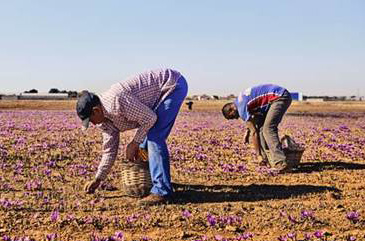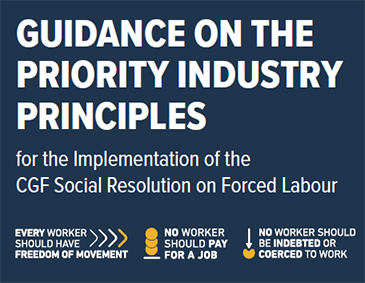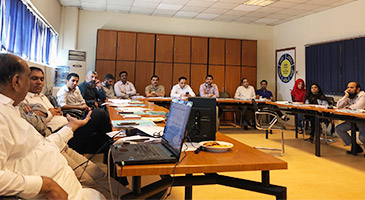Fair and socially equitable working conditions in the value chain


As an international wholesale business, METRO works with a large number of suppliers, growers and producers. Our objective is to ensure socially equitable working conditions throughout our procurement channels. As we expect our business partners to assume and observe similar values to ours, the METRO Code of Conduct for Business Partners is a fixed component of every business relationship. This code of conduct includes the observance of human rights as per UN and ILO standards, labour and social security issues based on the principles of the 4 key labour standards of the ILO, protection of the environment as well as regulations on corporate ethics, in particular on combatting corruption and bribery, on cartel and competition laws as well as on data protection. The 3 main principles of the Consumer Goods Forum Resolution on Forced Labour are also decisive for us. All our own-brand agreements further include a clause on social standards that gives us a legal tool to enforce our demands. In addition, the application of standard social systems is an essential part of the process and at the same time an important tool. They help us protect against possible risks from violations. After all, irresponsible practices along the supply chain undermine people’s trust in what we do and therefore also in our business.

As one of the founding members of the amfori Business Social Compliance Initiative (BSCI), we have been involved for years in systematically establishing socially fair working conditions in the manufacturing of our own-brand products. Our approach is to assist our suppliers and production facilities in setting up a suitable management process.
Auditing producers
To demonstrate our fair and socially equitable working conditions, we endeavour to have our producers audited as per the supply chain management of amfori BSCI or an equivalent standard. This concerns all the producers1 in defined risk countries (based on the assessment of amfori BSCI) in which METRO SOURCING has import goods manufactured, and non-food producers that manufacture own brands or own imports for our sales lines. 1,274 producers were audited as of 30 September 2018. Of these, 92% (1,173 producers) passed the audit. Producers that do not pass the audit must demonstrate improvement through a follow-up audit within 12 months. Since 1 January 2017, METRO Wholesale and Real are imposing more stringent requirements on suppliers: new suppliers are accepted only if they can show at least one passing audit result (amfori BSCI A−, B− or C or an approved audit equivalent). For current suppliers, a transition period of 2 years applies. In addition, we now stipulate more stringent requirements for all our suppliers in the field of application: all of our producers must prove at least acceptable audit results by 1 January 2019.
Social audits relating to own imports by METRO SOURCING and non-food own-brand products of the METRO sales lines
Producers with valid audit1
(number)
Thereof with passed audit (in %)
Deal-breaker process
As a measure contributing to ensuring socially acceptable work conditions, we defined so-called deal-breaker processes in 2016, in addition to the amfori BSCI standard processes. The assessment criteria comprise the aspects of child labour, forced labour, occupational safety (in particular fire prevention) and unethical behaviour. The deal-breaker process ensures that suppliers and their producers who identify a deal-breaker develop short-term and long-term solutions to remedy the critical findings. To make sure our suppliers and producers comply with these requirements, orders which are already in production may be completed, but new orders or follow-up orders will be stalled until the findings of the deal-breaker process have been rectified.
As of 30 September 2018, 62 non-food producers were reported with deal-breaker findings. This equates to 4.8% of all the producers audited. Among the deal-breaker findings as at the reporting date, 54 producers showed a heightened risk in the category of occupational safety, in particular concerning fire prevention, and 14 producers presented a heightened risk concerning discrimination/unethical behaviour. There were no reports in the child labour or forced labour categories. During the reporting period, 39 of the producers with deal-breaker findings were able to document short-term improvements and resume cooperation.
Training sessions

In order to contribute not only to claiming and imposing, but to actually improving social demands on suppliers, we introduced during the reporting period the first training sessions with special emphasis on the topic of forced labour. METRO Turkey and METRO Pakistan piloted 1-day training sessions for employees in key positions along the supply chain. The objective is to train employees to identify potential and/or actual forced labour incidents, to respond appropriately and to prevent them. The training sessions are designed and held in cooperation with amfori BSCI. By 30 September 2020, all METRO national subsidiaries are expected to have completed this training.
Our import company METRO SOURCING has been working with our local producers for years and accompanying them through training sessions designed to help them understand and comply with social standards. Following a focus on fire and occupational safety measures in recent years, it is conducting targeted corporate responsibility training sessions with our cooperation partners for the first time in 2018. In the financial year 2017/18, we were able to train 218 participants from 160 producers from Bangladesh, China, India and Turkey in 13 3-hour workshops. In future, the courses will take place annually in order to raise awareness for sustainability issues among METRO's partners as well.